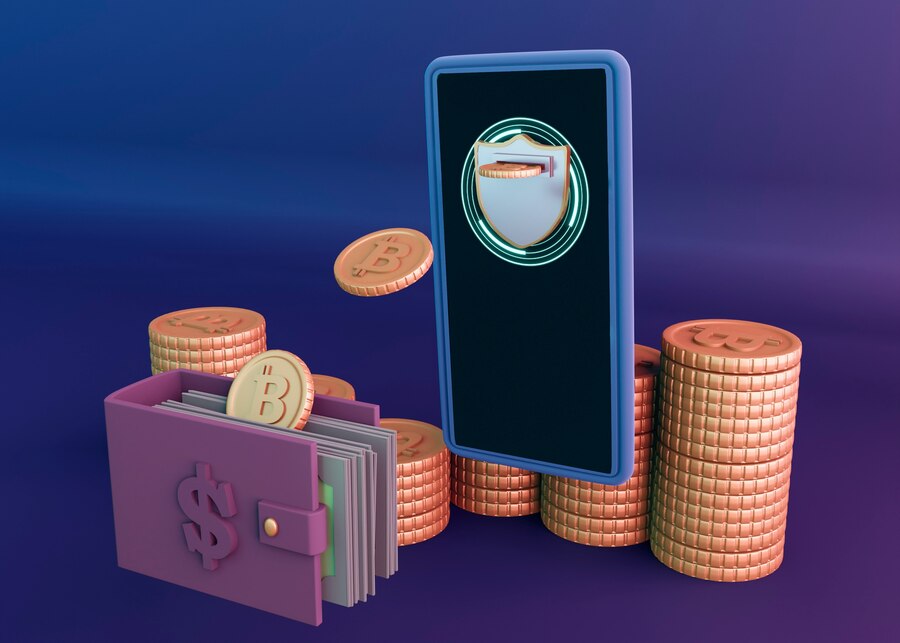
In a world where everyone is more connected than ever, people rely on mobile apps for a ton of stuff—paying bills, crafting workout routines, binge-watching movies, and even handling their bank biz. With cryptocurrencies gaining massive traction – like, Bitcoin’s currently sitting at $47,937, per CoinMarketCap –, it’s no wonder loads of companies are hustling to let users pay on the fly, ensuring that crypto coolness isn’t just tied to a desktop. Smart devices play a crucial role, especially for globetrotters and business guys, making finance management easy.
In the early 2010s, cryptocurrencies started grabbing global attention. During that period, the first apps solely dedicated to storing and managing cryptoassets emerged. These apps provided features such as displaying balances, generating addresses – alphanumeric strings identifying a wallet in a specific crypto network – and, of course, facilitating transactions. In the vulnerable landscape of mobile devices, developers began implementing robust security measures to encrypt private keys while enhancing user-friendliness. Today, digital wallets enable users to buy, sell, and track cryptocurrency prices in real time, along with features like staking and trading. For those new to the crypto scene, we suggest checking out our article on cryptocurrency transaction security, where you can find a tutorial on installing Exodus Wallet on both smartphones and desktop computers.
Accessibility, convenience, and security stand out as the top three advantages of using cryptocurrencies on mobile devices, at least from a general standpoint. This presents us with a highly advantageous scenario when it comes to online purchases, as more and more establishments have opted to embrace crypto as a form of payment over the years. All it takes is scanning a QR code or copying an address to send funds. This means we can snag desired products in just minutes, without the hassle of entering debit or credit card details. Some of the well-known companies that accept cryptocurrencies include NewEgg, a specialized electronics store; Microsoft –via BitPay–, the renowned software giant; Shopify, an e-commerce platform empowering merchants to create and manage online stores offering a variety of goods and services; and Bitrefill, a multinational company selling gift cards from some of the world’s most famous brands, such as Amazon, Xbox, PlayStation, Starbucks, Uber, among others.
Many people will tell you the obvious: smartphones are vulnerable to hacking. But we can do our bit to minimize that risk. Now’s the time to highlight some key points, like (1) reminding newcomers to keep educating themselves about scams, fake websites, and dodgy apps; (2) always double-checking the recipient’s address when making a transaction – sending cryptocurrencies to the wrong address means saying bye-bye to your funds; (3) sticking with trusted wallets – ones with a solid reputation in the market; (4) spreading out investments – don’t keep all your funds in one place; (5) using strong passwords and activating two-factor authentication, and of course, (6) never sharing your private keys with anyone.
In discussing precautions and security measures, it’s essential to consider two key points: Firstly, Artificial Intelligence (AI) has become integral in implementing advanced algorithms to detect suspicious activities within cryptocurrency apps. Secondly, Blockchain has emerged as a cornerstone not only in the development of digital identity solutions for mobile apps but also as the hub for DApps. These decentralized applications operate independently of third-party servers, providing democratized services like social networks, exchanges, and gaming. For more information, we recommend exploring our insights on AI and Blockchain-based games.

Towards greater connectivity
In December 2023, Exploding Topics compiled data from various sources, including Statista, Newzoo, and OtherBoxDesign, to produce a report on the exponential growth of smartphone usage. According to the report, the global number of smartphones has surged to nearly 7 billion, with user adoption steadily increasing by approximately 5% each year since 2018. This trend signals an irreversible shift towards smartphone reliance. Smartphone adoption will continue to grow.
Given the increasing demand for cryptocurrencies, it’s inevitable that we’ll see the emergence of more user-friendly mobile apps. This will pave the way for a larger number of individuals to enter the crypto market. Consequently, it’s crucial to bridge the gap in cryptocurrency education to reduce uncertainty. Our team is committed to playing on that side. We aim to contribute to the integration of crypto assets into people’s daily lives, with the reimagining of Purse.io being a key project toward this goal. But that’s not all—after months of hard work, we’re thrilled to announce the launch of Hamza.biz. What is Hamza? It’s an e-commerce platform powered by the LOAD protocol, designed to promote the values of decentralized finance. Our approach is to facilitate free negotiation between buyers and sellers, providing access to a wide range of crypto assets without the need for extensive personal data. Our motto is ‘Less obstacles, more freedom,’ as we believe that adopting any other approach will not yield efficient or satisfactory results.